People in Moeon
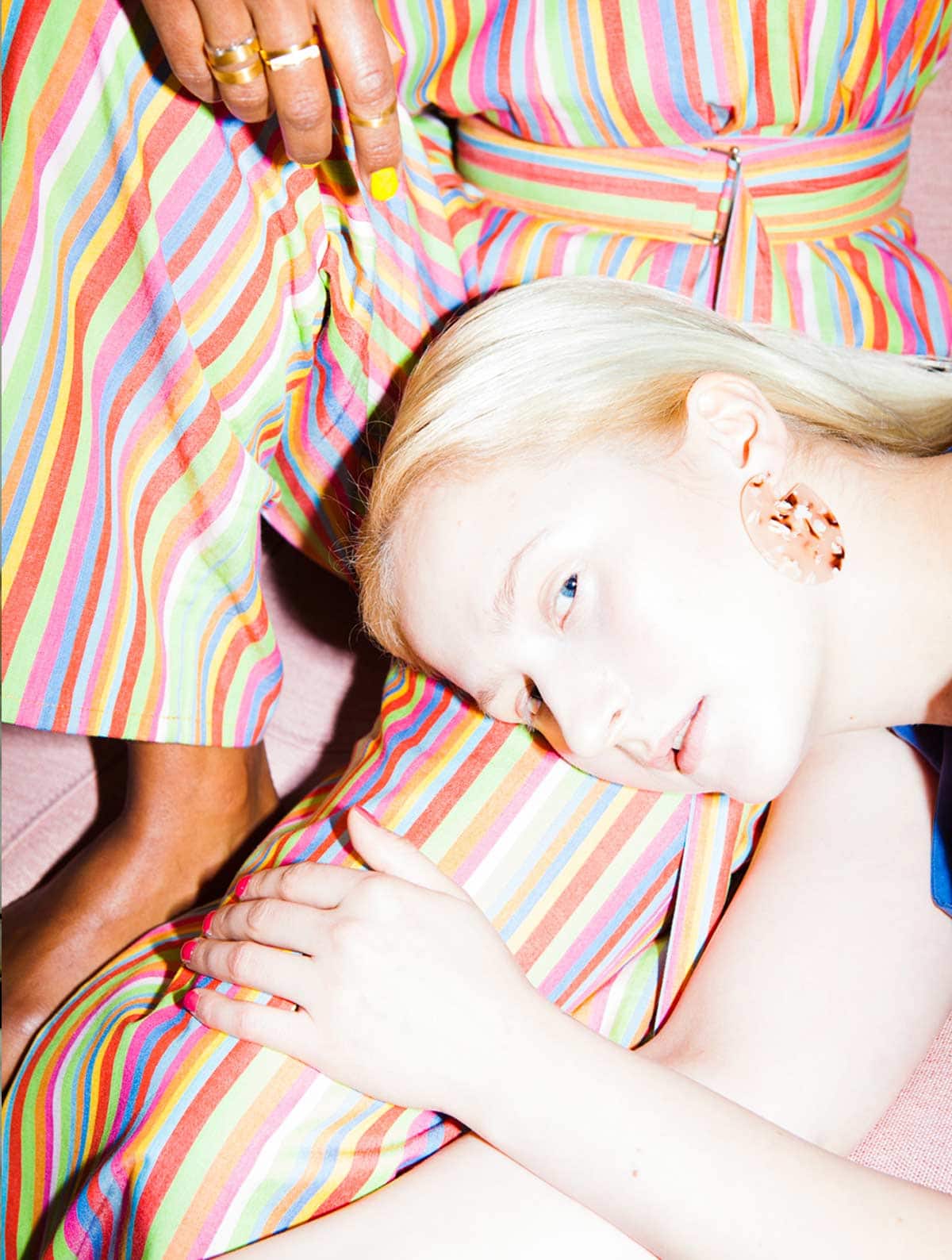
AMANDA
15.06.2018
Amanda says: "I am very interested in languages. I love to read poetry in original languages, that is a real passion of mine. At present I am trying to learn Russian and one day my goal is to read Dostoyevsky in its original Russian." Amanda Martikainen comes from Finland and is studying opera singing at the "University of Music and Theater" in Leipzig. She speaks six languages and her big dream is one day to spend a lot of time in Tibet. Currently she is often on the road as a guest soloist to build up a network and to gain professional experience. One issue that occupies her a lot, is that most of the conductors are male. She thinks the market is still very conservative. The few women who work in her business are always emphasized. But the classical market should free itself from these conservative constraints, of which she doesn`t even know what they are because all the people working in this profession are actually very forward thinking and modern. She herself has never worked with a conductress, which she thinks is a pity. Amanda often made the experience that music played by women is understood much more holistically and she would be extremely pleased to see what it would be like to play music with only women. Her goals she explains as "When I play music I do that with a lot of passion. Sharing experiences with other musicians is very important to me. It is a sense of community, therefore I would be very happy if I could become engaged in an opera house, because then I could work with colleagues on a long term basis."
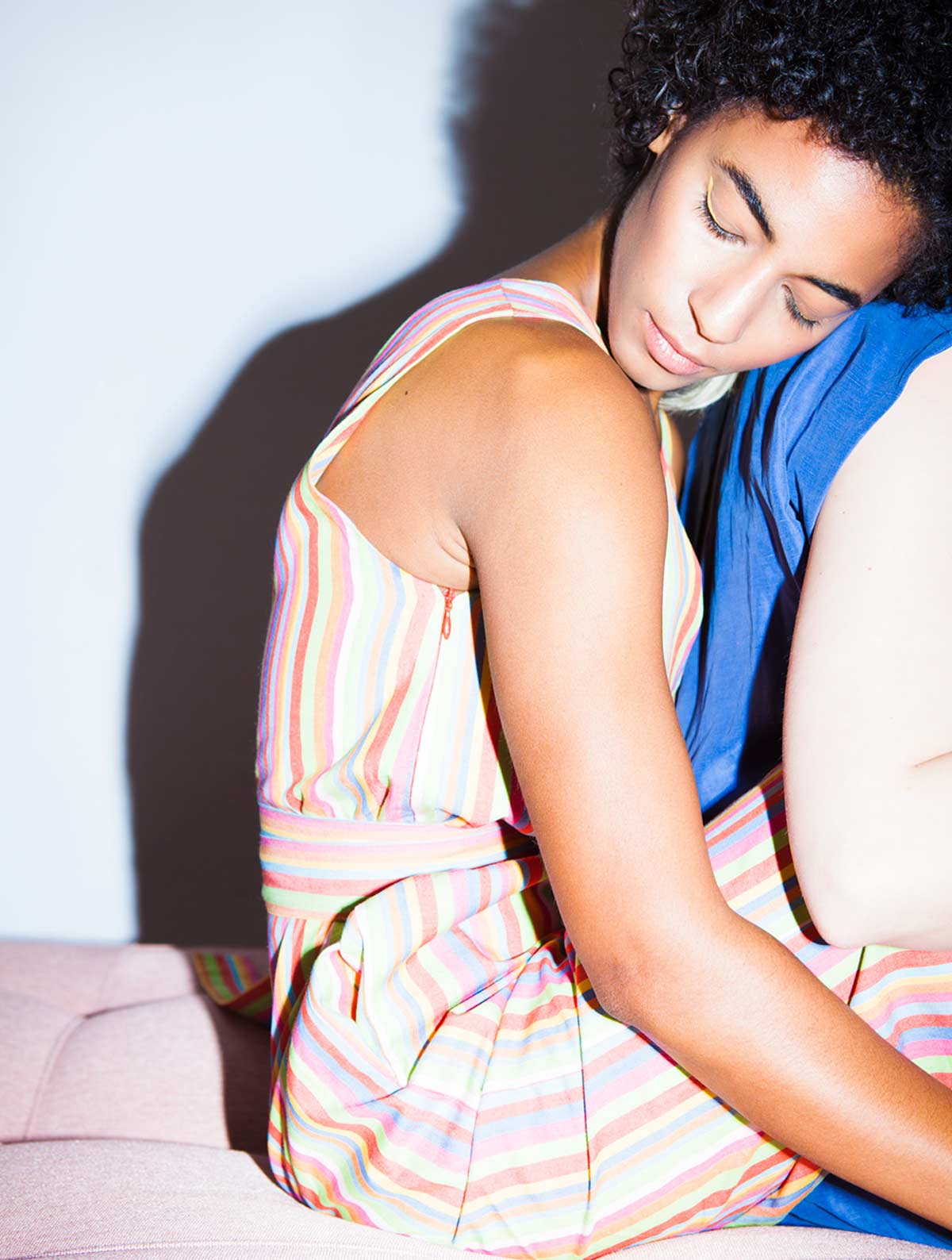
BUKI
31.05.2018
"I'm kind of totally accurate, but I'm also kind of totally free." Even as a small child, Buki Akomolafe had a passion for fashion. No wonder if you grow up between sewing machines! She lived with her family until she was six years old in VPP Nigeria where her father has an NGO that supports people in taking care of themselves. The main focus was on agriculture but there was also a women's workshop that her mother set up where fabrics were woven and clothes were sewn. In her collections Buki combines Nigerian joie de vivre and German precision in a unique way. In her small studio in Berlin Kreuzberg she designs and produces her high quality limited edition collections from colorful African wax print fabrics. When she is in Nigeria, she very often has to justify the way she dresses: "Then there are always discussions, you are not allowed to walk around like this, as a woman you have to be like that. I always go into confrontation and I think this is what I put into practice in my fashion. One of my themes is to show the world that a woman doesn't necessarily have to be dressed in just one way. But I don't want to be instructive because certain cultural aspects are simply different there. For example, my clothes are all long and cover certain parts of the body that should be covered when you live in Nigeria. However I don't think it's okay that many women there are not allowed to wear pants. Pants are important for a better freedom of movement. That is why I make long pants."
www.bukiakomolafe.com
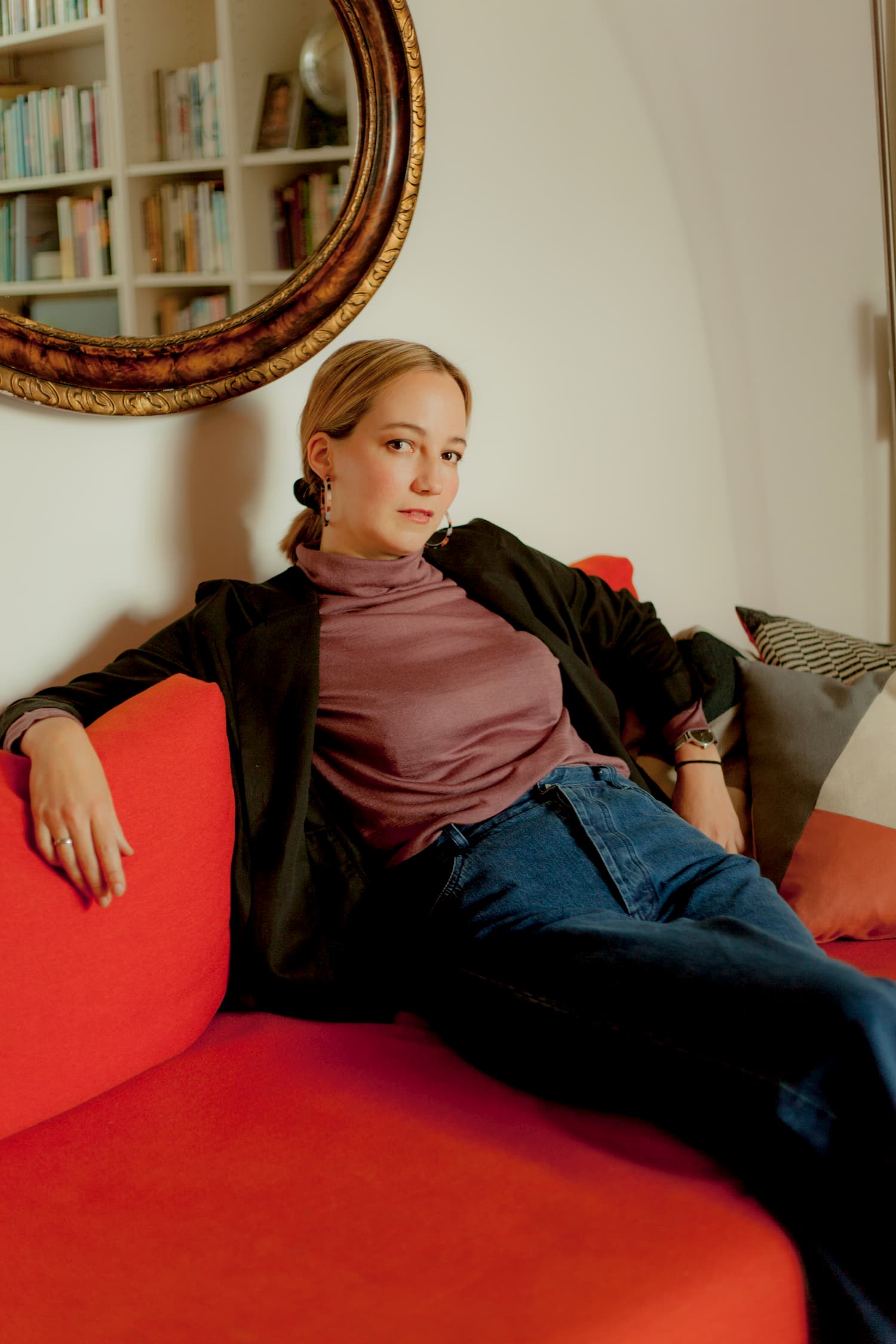
CONSTANZE
04.11.2019
Constanze lives with her family in Alt-Stralau/ Berlin when she's not flying around the world to stop climate change. She works for adelphi, a think tank that provides sustainable development solutions to governments, international organizations, businesses and civil society actors. As project leader of ICAP*, she moderates the exchange of experience between more than thirty governments and contributes to the global importance of CO2 pricing. She sees this as a core element in fulfilling the requirements of the Paris Agreement. "Fridays for Future" gives her hope. Governments must finally understand that they are not acting against the will of the voters if they do more for climate protection. "It is up to the individual to enable politicians to set the right framework conditions. We won't solve the problem with individual renunciation," she says. "We have too few positive scenarios for a life in 2050. How can a world with a lot of climate protection and resource protection, not just renunciation, look like? How can climate protection be shaped in a socially just way?" You start dreaming when you talk to Constanze about possible cities of the future, about their smell, their taste, about vertical gardens and garden roofs, about a lot of space in the city that belongs to the people again because we would have largely banned cars. Her wish for the future is that we can work much more concretely on these solutions and hand this world over to our children with the feeling that we have at least started to clean up the crap we caused.
* International Carbon Action Partnership: The International Carbon Action Partnership (ICAP) is an international forum for governments and public authorities wishing to implement emissions trading systems.
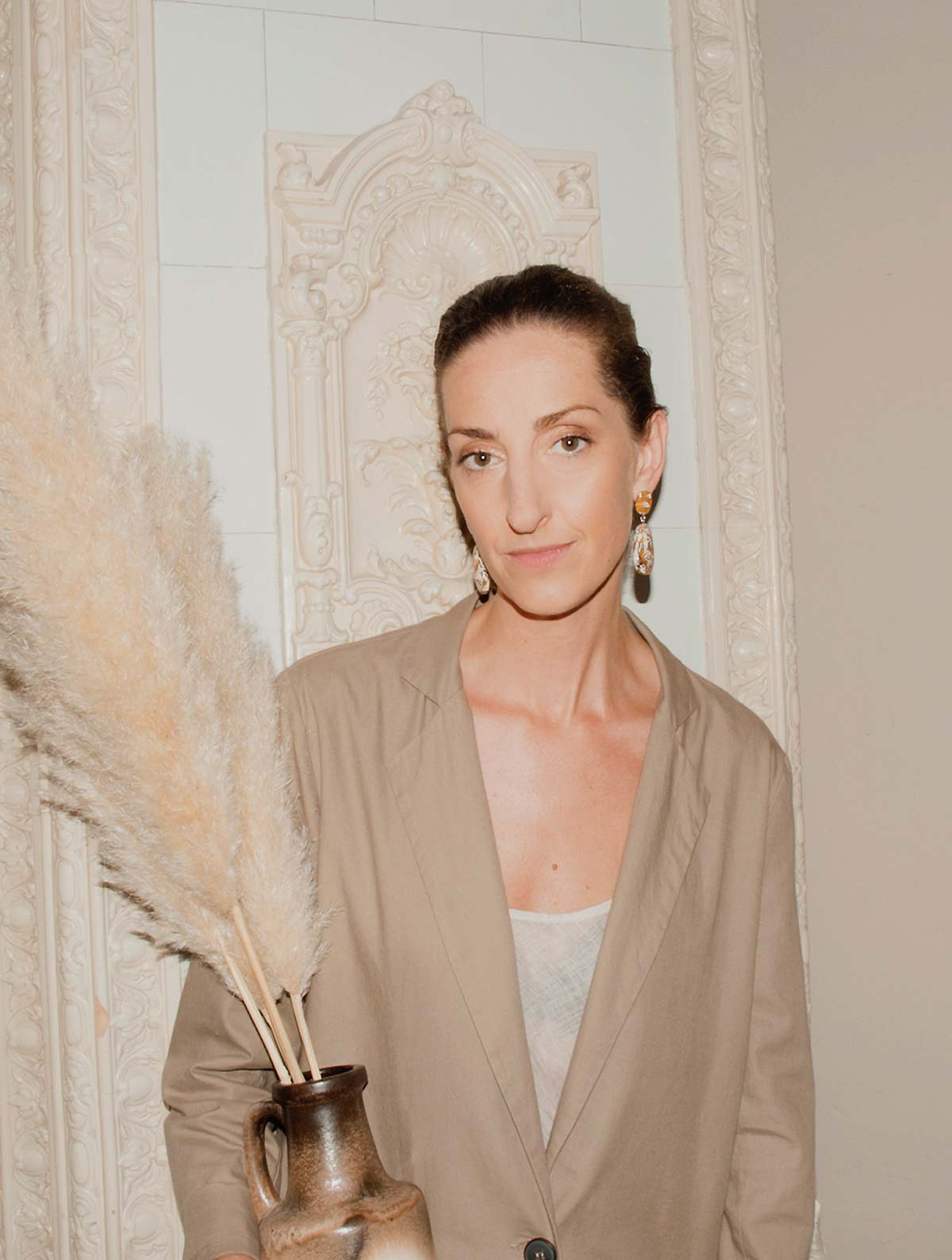
FRANZISKA
15.08.2019
Franziska, who lives with her husband and child in Berlin Kreuzberg and is a freelance photographer, says: "Clothes are not so important to me. At the end of the day I want to be dressed nicely but it has to be comfortable and warm enough. I don't buy much, but when I do it's rather expensive and I wear it forever. I find shopping exhausting and I am happy when clothes find their way to me without me having to go shopping. I also try to consume little, eat consciously and healthy and waste little. Right now I'm just looking forward to going back to work soon after the baby break as well as holidays at the Sea!
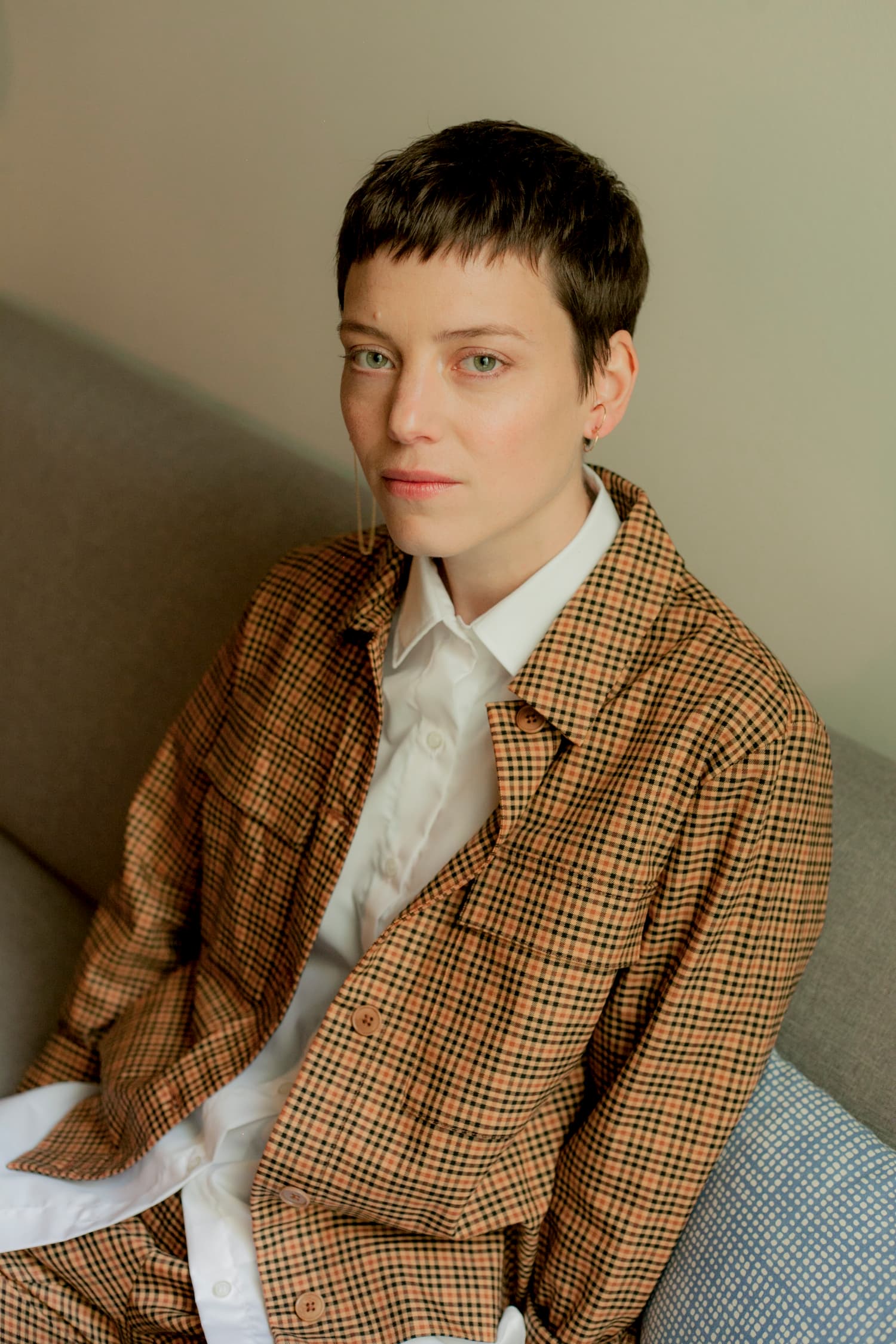
ISABEL
04.12.2019
Isabel is a product designer and has been living in Berlin for a year. She travels a lot and often works on several projects at the same time. She has just completed a collaboration with a lighting manufacturer, designed the furniture for a glasses store and worked for an Austrian cable car manufacturer. She loves to create things with her hands and since work on the computer currently predominates, she repairs her bike herself on weekends to compensate. In product design, she found the perfect mix of interests: A love of design and a strong fascination for technology. Nevertheless, she keeps asking herself the question of meaning: "Don't we live in a world where there's already too much and you should stop creating immediately? On the other hand," she says, "well-designed objects can have a very long life. Designers have the opportunity to advance innovation through creative, unconventional solutions. We urgently need them in a world with rapidly growing problems. "Isabel also pursues such a creative solution proposal as part of the association "Stadtlücken e.V.", which she founded a few years ago with friends in Stuttgart. A group of committed people takes the initiative here to create awareness in a speculated city for common space and a right to a city. Unused areas in the urban system should be made accessible to the inhabitants and their real needs. The aim is to exchange ideas, to get to know each other and to renegotiate living together again and again.
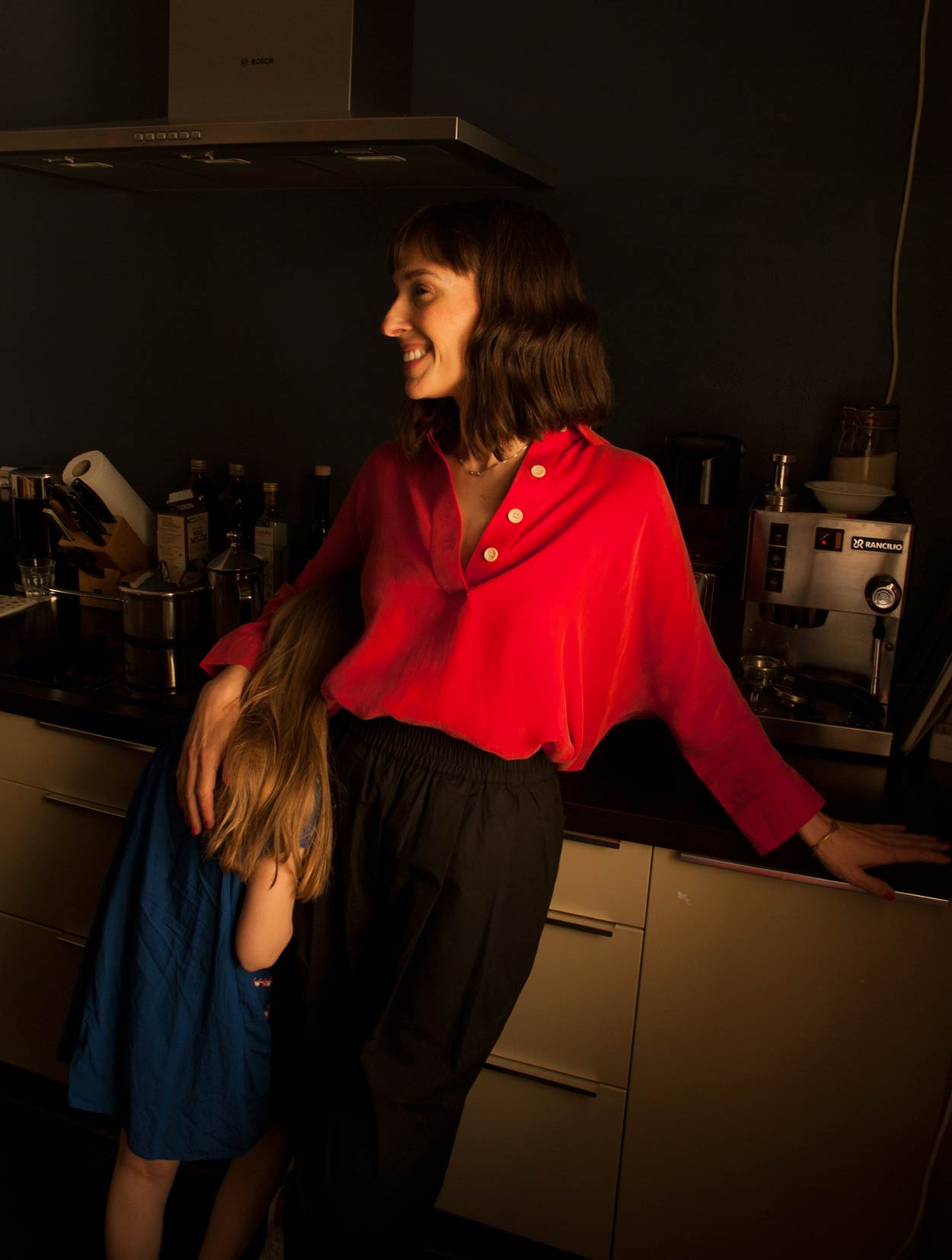
KRISTINA
06.06.2019
Kristina, owner of the actors agency GOLD BERLIN, lives with her two daughters and two cats in Prenzlauer Berg and says: "I have a heart for good, comfortable clothes, classic cuts and beautiful materials. My style is simple and unagitated and I always stay true to myself. Fashion trends don't interest me even though they do influence me and become a part of my style. I don't care which designer started which trend, I find the word must-have is a stupid term and I never read fashion magazines. What I find much more exciting are the socio-cultural aspects of clothing, why do people wear certain things, what do they want to say about themselves with clothing? I'm very concerned about sustainability, I don't want my children to blame me one day for taking part in the chaos we left behind. We no longer own a car, avoid air travel and mainly buy organic food. I find it difficult to part with things, and for this reason alone I pay attention to good quality and longevity. I do not want to consume something of which the production makes man, animal and environment suffer.
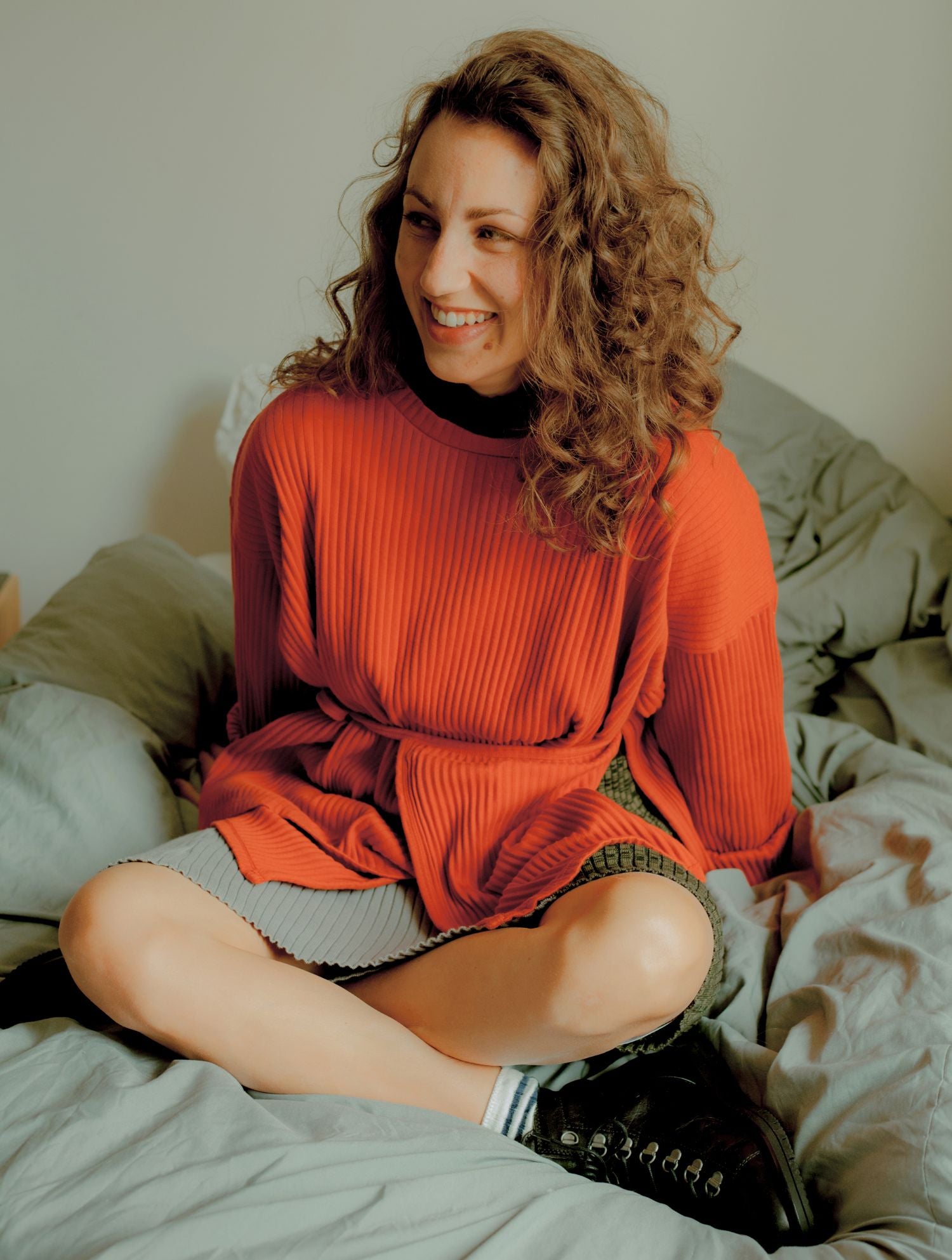
LENA
01.10.2019
Lena is currently graduating in architecture from the UDK, a dream she wanted to fulfill after working as a physiotherapist for several years. While she learned a lot about herself and her own body through physiotherapy, in architecture she now concentrates on creating spaces in which the body can feel comfortable. "In both professions it is first about the training of hands and eyes and about observing," she says. For Lena, observing also means repeatedly breaking out of the familiar and expanding her horizons through travel, getting to know new perspectives. She recently returned from a semester abroad in Japan. Fascinated, she tells of the differences between Japan and Germany in terms of people and space. She talks about the small, colorfully mixed carpet of buildings that make up Tokyo, about the reduced interior design that has become a tradition in Japan due to frequent earthquakes, and about the restraint of the people who, despite the high population density, make the metropolis of Tokyo appear relaxed in comparison to chaotic Berlin. Sooner or later Lena wants to leave Berlin anyway, because she notices increasingly that she prefers a life close to nature to the hustle and bustle of the big city.
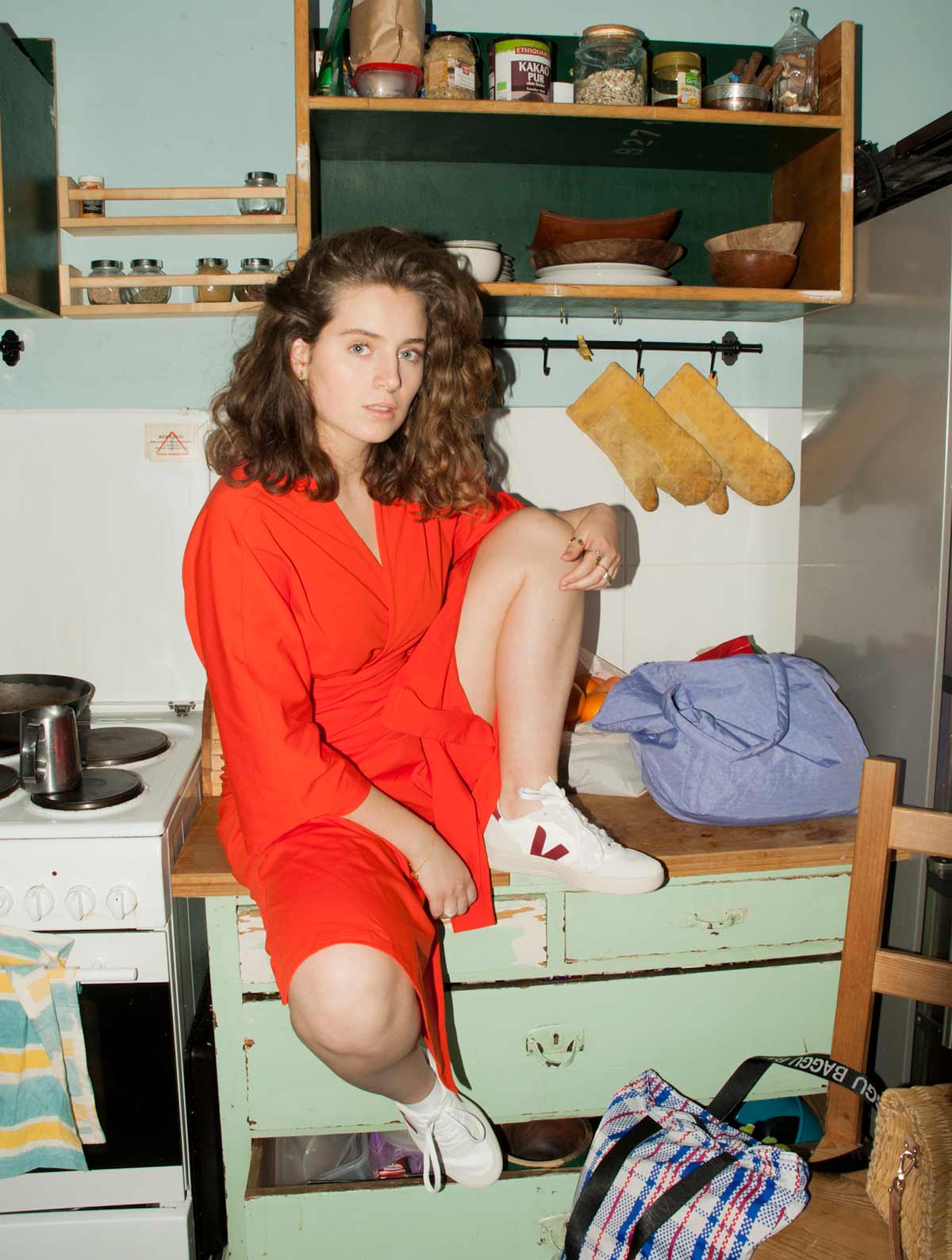
LUNA
08.07.2019
Luna, who comes from Spain and studies fine arts in Berlin, says: "For me, fashion is a non-verbal communication that shows others who we are. I would say that I have two main tendencies when it comes to my clothes: wide baggy style clothes, which I almost always steal from my partner, and feminine, figure-hugging dresses and skirts. But it depends on what I do during the day, I don't have to look nice to go shopping in the supermarket. Sometimes I really only wear what I find in the wardrobe and that's usually second hand. For me sustainability means not damaging the planet we live on unnecessarily and I try to buy only the things I love.
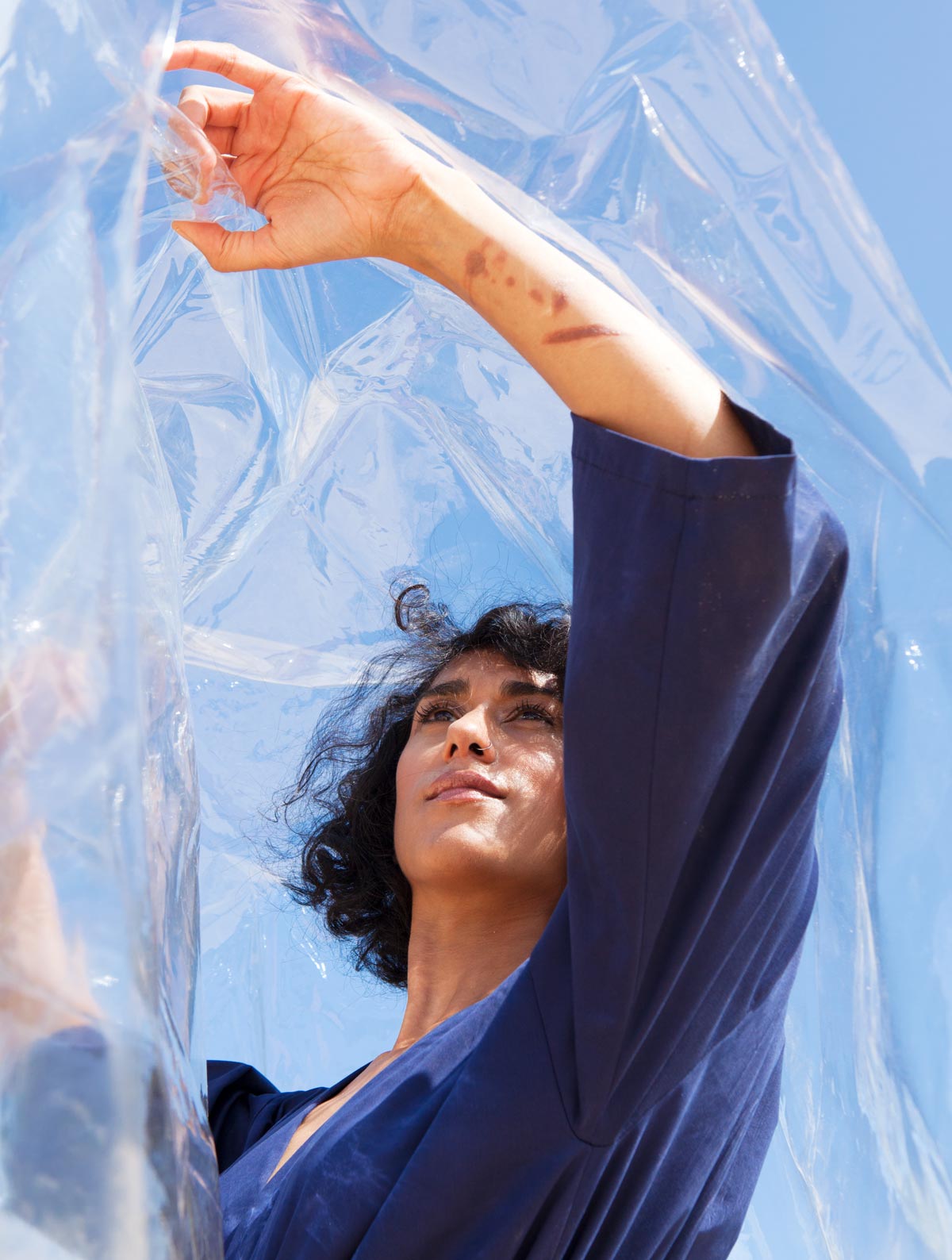
ZENIB
5.10.2018
"I think happiness is being close to the earth and appreciating it." Zenib is 31 years old and spends most of her time in the kitchen. She left Philadelphia, her home town, six years ago to start a new life in Berlin. Now she works as a chef in a restaurant in Schöneberg, 12 hours a day and says that this fits her personality. She originally comes from Pakistan and when they left her mom did not know what American food was. She always cooked Pakistani food so other kids would make fun of Zenib and her sister not having peanut-butter and jelly sandwiches. So her mother would start to make a mixture of Pakistani and American food which was horrible but it was something Zenib loved. The older she got the more she understood how important food is. She wanted to know more and more where it comes from and she wanted to buy local and regional in order to reduce her carbon foot print. Zenibs mom passed away five years ago and cooking is a way for her to stay connected to her mother. She considers herself American over Pakistani but thinks identity is a crazy thing. Pakistan is a problematic but very beautiful country to her. "They want to develop very quickly but there is nothing in place. Garbage is blowing everywhere, the water is bad, there is over population, there is fast development, but people are still living in villages with no power." But still she wants her future kids to speak the language and to know the food, because for Zenib food is such an important part of cultural identity.